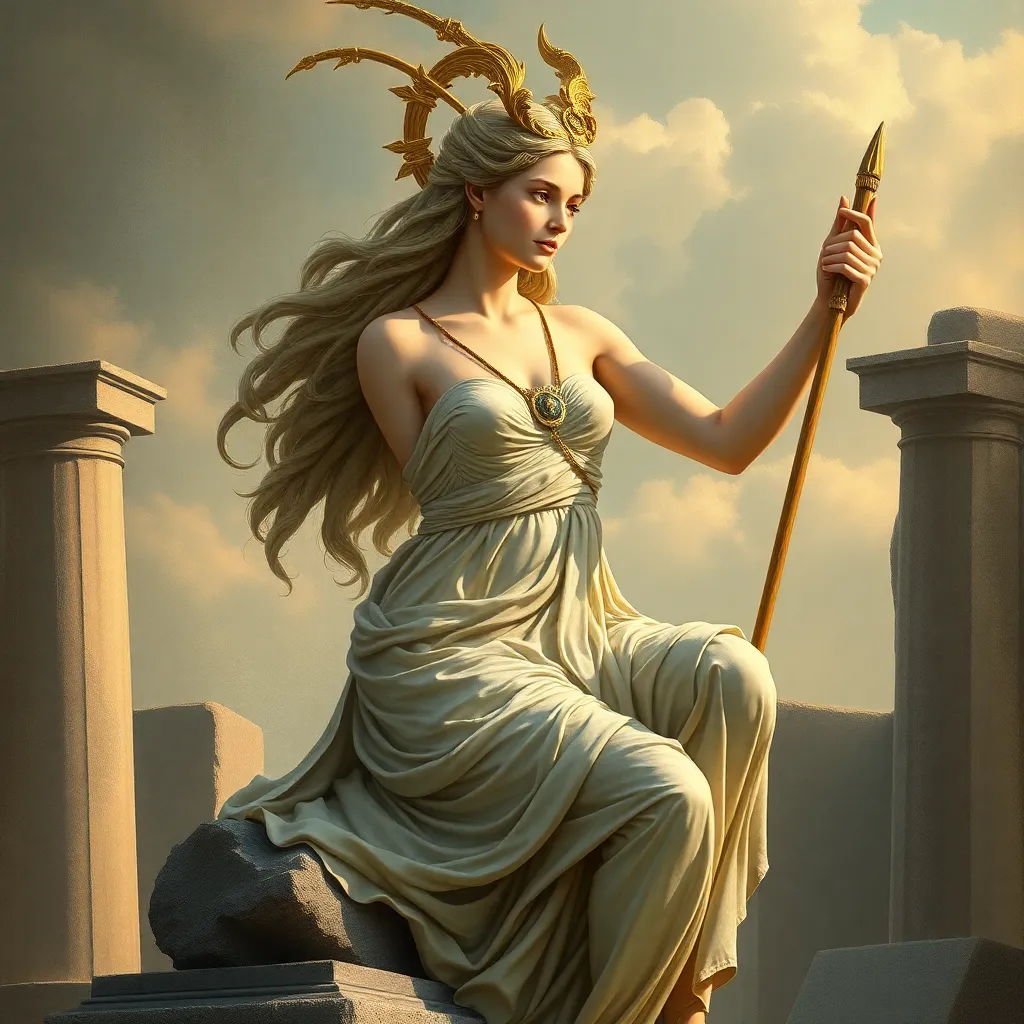Artemis in Poetry: How She Inspired Ancient and Modern Poets
I. Introduction
Artemis, the ancient Greek goddess of the hunt, wilderness, and childbirth, stands as a significant figure in mythology. Her multifaceted nature and powerful symbolism have made her a source of inspiration for many poets across the ages. Poetry serves as a unique medium to convey the essence of deities like Artemis, allowing their qualities and narratives to resonate deeply with human experiences. This article explores the profound influence Artemis has had on poets throughout history, tracing her depiction from ancient texts to modern interpretations.
II. The Mythological Significance of Artemis
In Greek mythology, Artemis is known as the daughter of Zeus and Leto and the twin sister of Apollo. She is revered as the goddess of the hunt, wild animals, and the moon, embodying both nurturing and fierce qualities.
- Key Attributes: Artemis is often associated with independence, strength, and a deep connection to nature.
- Symbols: Common symbols related to Artemis include the bow and arrow, deer, and the crescent moon.
Artemis represents a duality that captivates poets: she is both a fierce hunter and a protector of women and children, reflecting the complexities of femininity.
III. Artemis in Ancient Poetry
Artemis appears prominently in ancient poetry, particularly in the works of Homer and later Hellenistic poets.
A. Analysis of Early References to Artemis in Homeric Epics
In the Iliad, Artemis plays a crucial role in divine intervention, influencing the fates of mortals. Her presence is felt during battles, where she aids the Trojans and punishes those who offend her.
- The Iliad: The goddess is depicted as a fierce protector of her sacred animals and a vengeful force against those who disrespect her.
In the Odyssey, Artemis serves as a guiding influence for Odysseus, symbolizing the journey of self-discovery and the connection to the wilderness.
B. Examination of Hellenistic Poets and Their Depictions of Artemis
During the Hellenistic period, poets like Theocritus and Callimachus brought new themes to their portrayals of Artemis.
- Theocritus: His pastoral poetry often highlights the beauty of nature and the harmony between humans and the wilderness, echoing Artemis’s spirit.
- Callimachus: He blends nature with divine elements, showcasing Artemis as both a deity and a force of the natural world.
IV. Themes Inspired by Artemis in Ancient Poetry
Several recurring themes in ancient poetry highlight Artemis’s essence:
- Nature and Wilderness: The landscapes described often reflect Artemis’s domain, underscoring her connection to the natural world.
- Femininity and Strength: Poets juxtapose the traditional feminine roles with the strength and independence that Artemis embodies.
- Protector and Nurturer: Artemis is depicted as a guardian, particularly of women and children, reinforcing her dual role.
V. The Revival of Artemis in Modern Poetry
The Romantic movement in the 18th and 19th centuries saw a resurgence of interest in mythological figures, including Artemis. Poets began to reinterpret her character in ways that resonated with contemporary themes.
A. Influence of the Romantic Movement
Romantic poets, inspired by nature and emotion, often drew upon Artemis as a symbol of the untamed wilderness and the power of femininity.
B. Notable Modern Poets Who Draw Inspiration from Artemis
Several modern poets have explored the themes associated with Artemis:
- Adrienne Rich: In her poems, Rich often invokes Artemis as a symbol of female empowerment and autonomy.
- Louise Glück: In her works, Glück references the goddess to explore themes of loss, identity, and the connection to nature.
These modern interpretations often reflect contemporary struggles and triumphs, recontextualizing Artemis in a world that values female strength and independence.
VI. Themes in Modern Poetry Reflecting Artemis
The themes explored through Artemis in modern poetry reveal significant cultural shifts:
- Empowerment and Feminism: Modern poets often highlight Artemis as a figure of female strength and independence, challenging traditional gender roles.
- Nature and Conservation: The emphasis on environmental themes reflects a growing awareness of the need to protect the natural world, echoing Artemis’s own connection to nature.
- Quest for Identity: Poets explore personal autonomy and self-discovery, paralleling Artemis’s journeys and struggles.
VII. Comparative Analysis: Ancient vs. Modern Representations
While the portrayal of Artemis has evolved, there are notable continuities and shifts:
A. Continuities in the Portrayal of Artemis Across Time
Throughout history, Artemis remains a symbol of strength, independence, and a deep connection to nature.
B. Shifts in Thematic Focus
Modern representations often emphasize empowerment and the female experience, reflecting societal changes.
C. Evolving Relationship Between Humanity and Nature
Both ancient and modern poetry illustrate the intricate relationship between humanity and nature, with Artemis serving as a bridge between the two.
VIII. Conclusion
Artemis’s lasting impact on poetry is a testament to her complex character and multifaceted symbolism. From ancient texts to contemporary literature, her essence continues to inspire poets to explore themes of nature, femininity, and empowerment. As we reflect on the relevance of Artemis’s themes in today’s literary landscape, we invite readers to delve deeper into the connections between mythology and modern expression. The legacy of Artemis endures, inviting exploration and interpretation across generations.




